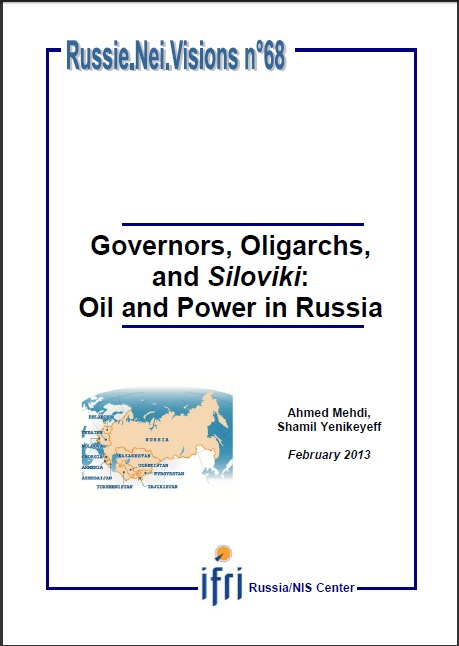Governors, Oligarchs, and Siloviki: Oil and Power in Russia

The contest for control of Russia's oil industry has been an integral feature of the country's politics ever since the collapse of the Soviet Union.
Therefore, an assessment of political elite dynamics and the competition for control over Russia's oil sector can explain why this industry has been subject to such rapid management changes, including the rise and demise of Russia's private oil corporations and the emergence of Rosneft as a national oil company (NOC). Whilst the 1990s and 2000s saw different management styles evolve in the industry, much of that competition took place during a time when Russia could exploit its Soviet-era legacy fields. The rise of Rosneft as Russia's super National Oil Company (NOC) has been driven just as much by internal political elite dynamics as it has by the challenges which Russia's oil industry faces, as it attempts to tap more remote fields in East Siberia and the Arctic.
Download the full analysis
This page contains only a summary of our work. If you would like to have access to all the information from our research on the subject, you can download the full version in PDF format.
Governors, Oligarchs, and Siloviki: Oil and Power in Russia
Related centers and programs
Discover our other research centers and programsFind out more
Discover all our analysesThe Caspian Sea as an Emerging Energy Hub : Potentials and Limitations
This report analyzes the prospects of the Caspian Sea region — and its key actors except for Russia and Iran — becoming an important energy hub serving the needs of the European Union (EU).
The European Union's Strategic Test in Georgia
The political crisis brewing in Georgia is of an existential nature for the country. What is at stake is Georgia's future as a democratic and sovereign European nation (EU).
Commanders of Putin's Long War: Purged, Reshuffled and Disgruntled
The trend of reshuffling the Russian top military command in the course of a fast-evolving and far from successful war has progressed unevenly both across the Armed Forces’ structures and in time. The rationale for and timing of the abrupt cadre decisions made by Commander-in-Chief Putin often defy logical explanation, and the rare official clarifications are no more informative than the usual information blackout.
Russian Military Manpower After Two and a Half Years of War in Ukraine
In addition to a military victory in Ukraine, the Russian leadership is planning to build up sizable troop formations for a possible conflict with NATO in the Baltic region and the Kola Peninsula. In particular, current plans aim for the military manpower to grow by about 350,000, reaching a total of 1.5 million soldiers and commanders. In the context of the current conflict in Ukraine, this cannot be accomplished without a new wave of mass mobilization.









